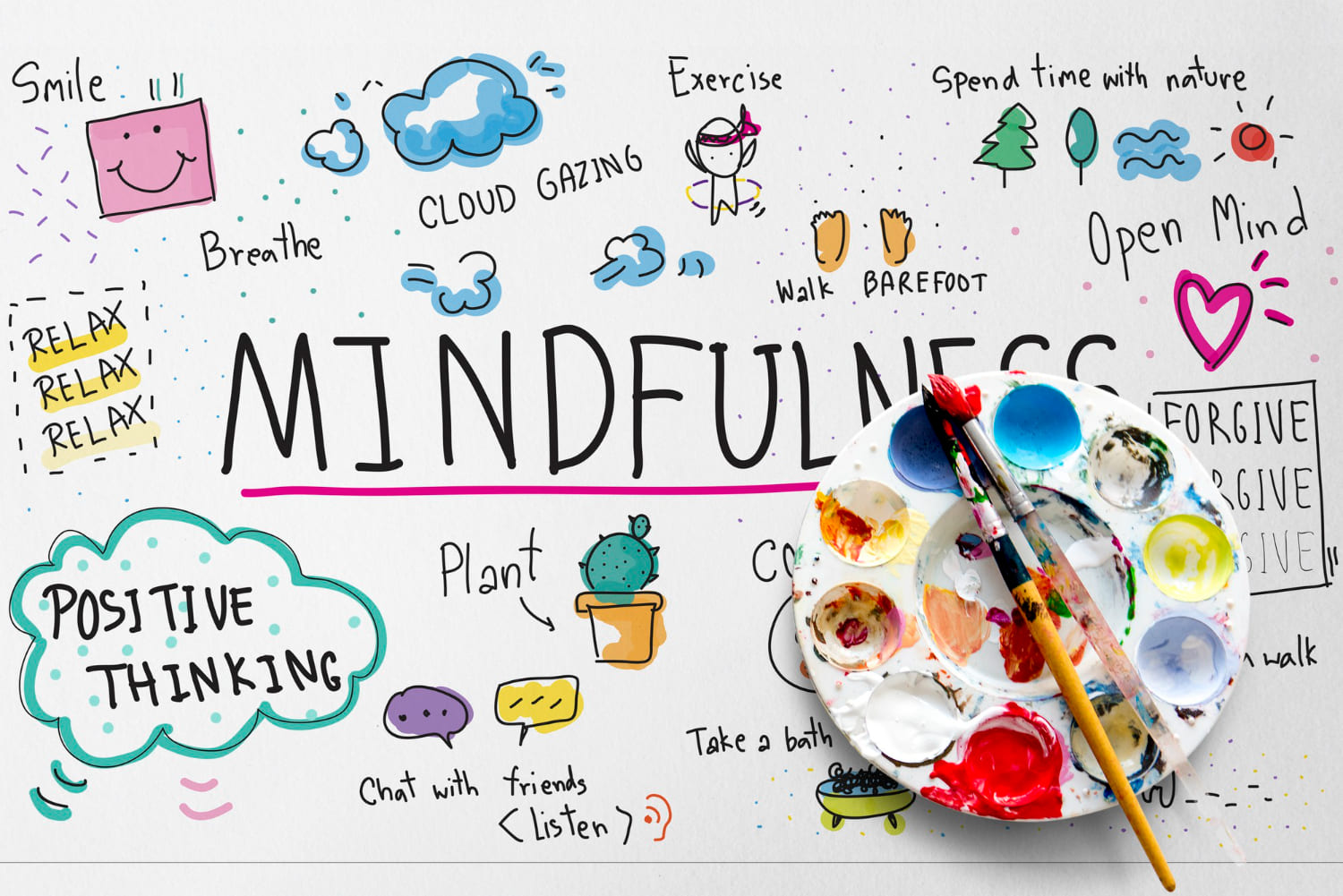In this blog post, we’ll explore how practicing mindfulness affects your brain and contributes to better health.
Let’s dive in!
Definition of mindfulness
Mindfulness is a mental state of awareness, focus, and openness to the present moment, without judgment or distraction from external or internal stimuli.
It involves paying attention to one’s thoughts, feelings, and bodily sensations
as well as the surrounding environment, with a non-reactive and non-judgmental attitude.
It practices can include meditation, breathing exercises, and other techniques that help individuals cultivate this state of mind and develop greater self-awareness, emotional regulation, and overall well-being.
It has been found to have a range of benefits for mental and physical health, including reduced stress and anxiety, improved cognitive function, and increased resilience and happiness.
Importance of mindfulness
Mindfulness has become increasingly important in modern society due to the many benefits it offers for mental, emotional, and physical well-being.
Here are some reasons why it is important:
- Reduces stress and anxiety
- Improves focus and cognitive function
- Enhances self-awareness and emotional regulation
- Supports physical health
- Promotes overall well-being and happiness
Overall, it is an important practice for anyone seeking to improve their mental, emotional, and physical health, and enhance their overall quality of life.
Mindfulness and Meditation
Mindfulness and meditation are closely related practices, but they are not exactly the same thing.
It refers to a state of awareness and presence in the present moment, without judgment or distraction.
It involves paying attention to one’s thoughts, feelings, and bodily sensations
as well as the surrounding environment, with a non-reactive and non-judgmental attitude.
Meditation, on the other hand, is a specific technique or practice that can help individuals cultivate it.
It typically involves sitting quietly and focusing one’s attention on a particular object, such as:
- the breath
- a mantra
- or a visual image
in order to train the mind to become more focused, calm, and attentive.
While meditation is one way to cultivate mindfulness, there are also other practices that can help individuals become more mindful, such as:
- yoga
- tai chi
- or simply paying attention to one’s daily activities with greater awareness.
Overall, both it and meditation can be beneficial practices for improving mental, emotional, and physical well-being, and they are often used together as part of a holistic approach to health and wellness.

How meditation relates to mindfulness
It is one of the most common techniques used to cultivate it.
Through meditation, individuals can train their minds to become more focused and aware of the present moment, which is the essence of mindfulness.
During meditation, individuals typically sit quietly and focus their attention on a particular object, such as the breath, a mantra, or a visual image.
As thoughts, feelings, and sensations arise, individuals are encouraged to observe them with a non-judgmental and non-reactive attitude, and then bring their attention back to the object of focus.
Over time, regular meditation practice can help individuals develop greater awareness, clarity, and equanimity, both during formal meditation sessions and in everyday life.
In summary, while mindfulness and meditation are not exactly the same thing, meditation is a powerful tool for cultivating mindfulness and reaping its many benefits.
You may also be interested in: How to deal with anxiety and stress
Practicing Mindfulness
Practicing mindfulness can be a powerful way to improve mental, emotional, and physical well-being.
Here are some tips for how to practice it:
- Set aside time for formal practice
- Practice informal mindfulness throughout the day
- Observe thoughts and emotions without judgment
- Focus on the present moment
- Cultivate kindness and compassion
Overall, practicing mindfulness is a powerful way to improve well-being and cultivate greater awareness and presence in everyday life.
It takes practice and patience, but with time and dedication, it can become a powerful tool for improving mental, emotional, and physical health.

Techniques to practice mindfulness
There are many techniques and exercises that can be used to practice it.
Here are some popular techniques:
- Mindful breathing
- Body scan
- Mindful walking
- Loving-kindness meditation
- Mindful eating
- Mindful listening
- Mindful observation
Benefits of Mindfulness
Here are the benefits of it in the following categories:
- Physical Benefits:
- Reduced stress
- Improved sleep
- Lowered blood pressure
- Enhanced immune system
- Mental Benefits:
- Reduced anxiety and depression
- Improved cognitive function
- Increased self-awarenes
- Increased resilience
- Emotional Benefits:
- Greater emotional regulation
- Increased compassion
- Greater sense of well-being

Incorporating Mindfulness into Daily Life
Incorporating mindfulness into daily life doesn’t have to be complicated. Here are some brief tips:
- Start the day mindfully: Begin your day with a few moments of mindfulness, such as deep breathing or focusing on your senses.
- Practice mindfulness during routine activities: Bring it to everyday activities, such as washing dishes, brushing your teeth, or walking the dog.
- Take mindful breaks: Take short breaks throughout the day to practice it, such as taking a few deep breaths or doing a quick body scan.
- Use reminders: Set reminders throughout the day to bring yourself back to the present moment and practice it.
- Practice gratitude: Take a few moments each day to reflect on what you’re grateful for, and notice how it makes you feel.
- Practice mindfulness before sleep: End your day with a few moments of it, such as a body scan or mindful breathing.
Overall, incorporating it into daily life can be as simple as taking a few moments to focus on your breath or observe your surroundings.
With practice, it can become a natural and effortless way of being in the world, leading to greater peace, happiness, and well-being.
Conclusion
It is an effective and proven practice for improving mental and psychological health.
By using this practice, we can improve our focus and attention, reduce levels of stress and anxiety, and enhance our sense of satisfaction and happiness in life.
Given the significant positive effects of mindfulness, we encourage everyone to try it and use it in their daily lives.
Just train regularly, and you will notice a clear difference in your personal and professional life, and you will be able to deal with challenges with ease.
So, let’s start practicing mindfulness today and make it a part of our daily lives.
You may also be interested in: Psychological causes of anxiety













